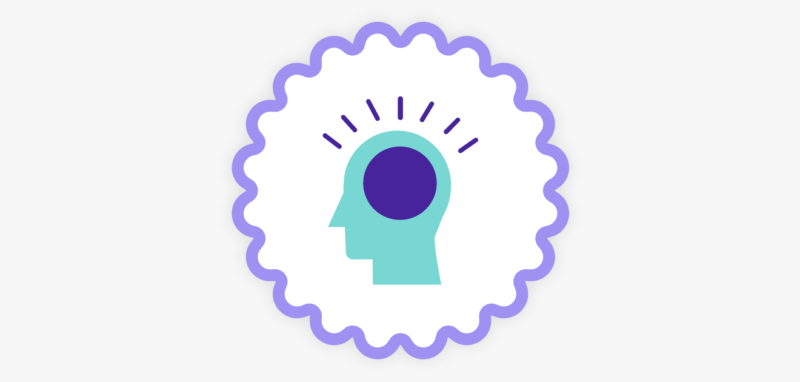Tech Skill
Spring Boot Skills
All about Spring Boot
Spring Boot is an open-source Java framework that simplifies the development of stand-alone, production-grade Spring-based applications. It eliminates manual configuration by providing defaults for common settings and allowing developers to override them as needed. Spring Boot leverages the power of the Spring ecosystem, including Spring Framework, Spring Data, Spring Security, and Spring Cloud, to provide a comprehensive platform for building modern web applications.
What to use Spring Boot for
Here are some key applications of Spring Boot:
- Web Application Development: Spring Boot is widely used for building web applications and APIs using the Spring MVC framework. It provides out-of-the-box support for handling HTTP requests, routing, request/response serialization, and error handling, allowing developers to focus on implementing business logic and delivering value to users.
- Microservices Architecture: Spring Boot is well-suited for building microservices-based architectures, where applications are decomposed into smaller, independently deployable services. It provides features such as embedded servers, service discovery, distributed tracing, and centralized configuration, making it easy to develop, deploy, and manage microservices in a cloud-native environment.
- RESTful Web Services: Spring Boot provides built-in support for creating RESTful web services using Spring MVC and Spring WebFlux. It enables developers to define RESTful endpoints, handle HTTP requests and responses, serialize/deserialize JSON data, and implement features such as content negotiation, validation, and error handling, making it easy to build scalable and interoperable APIs.
- Batch Processing: Spring Boot offers support for batch processing tasks, such as ETL (Extract, Transform, Load), data migration, and report generation, using Spring Batch framework. It provides features such as job scheduling, parallel processing, fault tolerance, and transaction management, making it suitable for processing large volumes of data efficiently and reliably.
- Integration with Database and Data Access: Spring Boot simplifies database access and data manipulation using Spring Data framework. It provides support for various data sources, including relational databases (e.g., MySQL, PostgreSQL, Oracle), NoSQL databases (e.g., MongoDB, Redis), and cloud-native data services (e.g., Amazon DynamoDB, Google Cloud Datastore), allowing developers to interact with data easily and efficiently.
Companies of all sizes use Hired to find engineers with Spring Boot skills
What is a Spring Boot Developer?Spring Boot developers have a solid understanding of the Spring Framework and its core concepts, including dependency injection, inversion of control, aspect-oriented programming, and declarative transaction management. They are familiar with various modules of the Spring ecosystem, such as Spring Core, Spring MVC, Spring Data, Spring Security, and Spring Cloud, and know how to use them effectively to develop enterprise-grade applications.
Here’s what it means to be a Spring Boot developer:
- Web Development Skills: Spring Boot developers have skills in web development, including HTML, CSS, JavaScript, and front-end frameworks such as Angular, React, or Vue.js. They understand how to build user interfaces, handle client-side interactions, and consume RESTful APIs using AJAX or fetch API, enabling them to develop full-stack web applications with Spring Boot as the backend.
- Database and Data Access: Spring Boot developers have knowledge of database management systems (DBMS) and data access technologies, such as JDBC, JPA (Java Persistence API), Hibernate, and Spring Data. They understand how to interact with relational and non-relational databases, execute SQL queries, perform CRUD operations, and implement data access patterns such as repositories and DAOs, to store and retrieve data effectively in Spring Boot applications.
- Testing and Quality Assurance: Spring Boot developers have experience with software testing and quality assurance practices, including unit testing, integration testing, and end-to-end testing. They know how to write testable code, create test cases, mock dependencies, and use testing frameworks such as JUnit, Mockito, and Spring Test, to ensure the correctness, reliability, and performance of Spring Boot applications.
- DevOps and CI/CD: Spring Boot developers have knowledge of DevOps principles and practices, including continuous integration (CI) and continuous delivery/deployment (CD). They understand how to automate build, test, and deployment processes using tools such as Jenkins, GitLab CI/CD, or Travis CI, and leverage cloud platforms such as AWS, Azure, or Google Cloud Platform, to deploy and manage Spring Boot applications in production environments.
- Reactive Programming: With the increasing demand for reactive and asynchronous applications, Spring Boot developers need to have knowledge of reactive programming principles and frameworks, such as Project Reactor and Spring WebFlux. They should be able to develop non-blocking, event-driven applications that can handle high concurrency and throughput, and integrate reactive components into Spring Boot applications to improve performance and scalability.
- Cloud-Native Development: Spring Boot developers need to have knowledge of cloud-native development principles and practices, and understand how to build and deploy cloud-native applications using Spring Boot and Kubernetes. They should be able to containerize Spring Boot applications, deploy them to Kubernetes clusters, and leverage cloud-native services, such as service mesh (e.g., Istio) and observability tools (e.g., Prometheus, Grafana), to build and operate resilient and scalable applications in cloud environments.
- Serverless Computing: With the growing popularity of serverless computing for building event-driven and scalable applications, Spring Boot developers need to know serverless platforms, such as AWS Lambda, Azure Functions, or Google Cloud Functions. They should be able to design and implement serverless architectures, define serverless functions and triggers, and integrate serverless components into Spring Boot applications, enabling them to build and deploy serverless applications quickly and cost-effectively.
- Machine Learning Ops (MLOps): With the increasing demand for AI and machine learning solutions, Spring Boot developers need to know machine learning operations (MLOps) practices for automating the end-to-end machine learning lifecycle. They should be able to build, train, and deploy machine learning models using frameworks such as TensorFlow and PyTorch, and integrate them into Spring Boot applications.
- Security and Compliance: Spring Boot developers need to have knowledge of security best practices and compliance requirements for developing and deploying applications in regulated industries. They should understand how to implement security controls, such as authentication, authorization, and encryption, and comply with industry standards and regulations to protect sensitive data.
Spring Boot resources
Check out our resources to continue sharpening your Spring Boot skills.
Hired profiles help developers showcase their top tech skills
After passing Hired skills assessments, candidates may showcase their skills to employers. They can opt to present an ‘Assessments’ badge on their profile. Candidates may take various assessments including Programming Skills, Full Stack, Backend, Frontend, iOS, Android, Debugging, DevOps Generalist, and DevOps AWS.
Find Spring Boot jobs on Hired.
Hiring Spring Boot developers can bring numerous benefits to your organization:
- Rapid Application Development: Spring Boot developers enable organizations to accelerate the development of Java-based applications by providing a streamlined and efficient development experience. They help reduce development time and effort by eliminating the need for manual configuration and setup, and by offering out-of-the-box solutions for common development tasks, enabling teams to focus on delivering value to customers quickly and efficiently.
- Robust and Scalable Applications: Spring Boot developers help organizations build robust, scalable, and maintainable applications by leveraging the power of the Spring ecosystem. They enable teams to leverage Spring Boot’s built-in support for dependency injection, auto-configuration, and production-ready features, to build applications that are resilient to failures, scalable to handle increasing loads, and maintainable over time, enabling organizations to deliver value to customers consistently and reliably.
- Flexibility and Extensibility: Spring Boot developers empower organizations to build flexible and extensible applications by providing a modular and customizable development platform. They enable teams to leverage Spring Boot’s extensive ecosystem of plugins, libraries, and extensions, to extend and customize the functionality of their applications, and to integrate with other systems and platforms seamlessly, enabling organizations to adapt and evolve in response to changing requirements and market conditions.
Looking for candidates skilled in Spring Boot? Technical assessments are a multi-pronged solution. They allow you to streamline the hiring process and reduce bias with tech skill-focused benchmarks.
Hired Assessments offers a library of hundreds of questions and customizable coding challenge campaigns tailored to technical preferences. Centralize and standardize your evaluation process as you surface top talent with specific, hard-to-find skills.
See how Mastercard and Axon used Hired Assessments to vet top candidates.
Resources you’ll love

4 Offer Stage Strategies to Win Top Candidates
Getting a candidate to the offer stage You’ve run a seamless process. Your hiring manager and...

How to Manage Inbound Applications & Rethink Talent Sourcing Analytics: Tips for Recruiters
Experiencing an overwhelming volume of inbound applications? In a new episode of Talk Talent to...

AI Leads to More Human-Centric Recruitment & Hiring (What!?)
Leading the way to streamlined & people-focused processes AI is more than just an ongoing...


